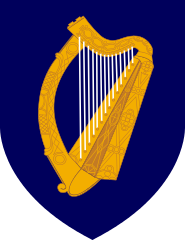The Irish Times should appeal the costs order to the ECHR – Part II
 In Mahon Tribunal v Keena [2009] IESC 64 (31 July 2009) (also here (pdf) (to which I will refer as Mahon Tribunal v Keena (No 1)) the Irish Times successfully resisted an attempt by the Mahon Tribunal to compel the Editor and Public Affairs Correspondent of the Irish Times to disclose the source of a leaked Tribunal document. However, in Mahon Tribunal v Keena [2009] IESC 78 (26 November 2009) (to which I will refer as Mahon Tribunal v Keena (No 2)), the Court held that the journalists should pay the Tribunal’s costs of more than €600,000.
In Mahon Tribunal v Keena [2009] IESC 64 (31 July 2009) (also here (pdf) (to which I will refer as Mahon Tribunal v Keena (No 1)) the Irish Times successfully resisted an attempt by the Mahon Tribunal to compel the Editor and Public Affairs Correspondent of the Irish Times to disclose the source of a leaked Tribunal document. However, in Mahon Tribunal v Keena [2009] IESC 78 (26 November 2009) (to which I will refer as Mahon Tribunal v Keena (No 2)), the Court held that the journalists should pay the Tribunal’s costs of more than €600,000.
In yesterday’s post, I argued that this was illogical: if the journalists had a privilege to with-hold the document and decline to answer the questions, then they had the privilege, and it doesn’t matter what they did with the document, and taking objection to its destruction by the journalists is neither here nor there. However, even if this might provide some justification for some punishment of the journalists, nevertheless, the European Court of Human Rights is very likely hold that this punishment is inconsistent with Article 10 of the European Convention on Human Rights. A crucial case in this respect is Cumpana and Mazare v Romania 33348/96, (2005) 41 EHRR 14, [2004] ECHR 692 (17 December 2004), where the Court held that although some penalty would have been appropriate, disproportionately severe sanctions infringed the applicant journalists’ Article 10 rights.…
 In a classic example of giving with one hand and taking away with the other, the Supreme Court first held that the Irish Times could assert a privilege to decline to answer questions from a Tribunal, but then ordered the paper to pay the Tribunal’s costs. This is, to say the least, a curious and illogical decision, and it is very doubtful whether the European
In a classic example of giving with one hand and taking away with the other, the Supreme Court first held that the Irish Times could assert a privilege to decline to answer questions from a Tribunal, but then ordered the paper to pay the Tribunal’s costs. This is, to say the least, a curious and illogical decision, and it is very doubtful whether the European 




